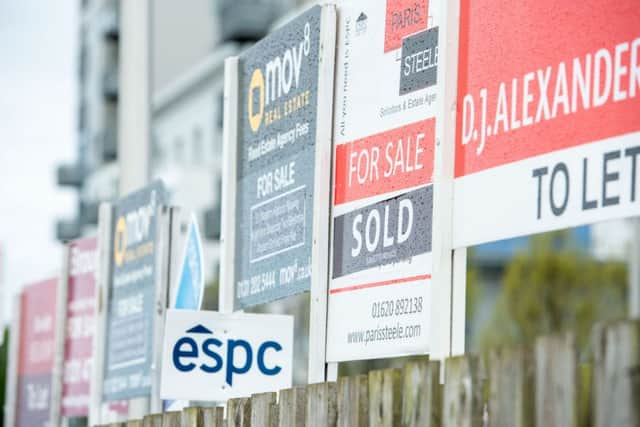Buyers hit by SNP’s ‘unfair’ charges on second homes
Hundreds of people are being hit by the “anomalies” in the additional dwelling supplement (ADS) and public finance minister Kate Forbes has said she is “sympathetic” to concerns.
The ADS was introduced three years ago and intended as a tax on buy-to-let landlords and people buying holiday homes.
Advertisement
Hide AdAdvertisement
Hide AdSenior Nationalist Bruce Crawford, who chairs Holyrood’s public finance committee, has indicated the Government will legislate to address the issues in a letter to Ms Forbes.


“You told us you are sympathetic to a number of these issues and acknowledged there may be a need to address them,” Mr Crawford states.
Homeowners affected by the ADS told the committee that “payment of the tax has been unjust and against the spirit of the legislation”, his letter states.
Scots already pay land and buildings transaction tax (LBTT) when they buy a home. However, if they already own another property, they may also be liable for the ADS.
This year the ADS rose from 3 to 4 per cent. That means a £250,000 home would face an additional tax bill of £10,000, on top of the amount charged through LBTT.
The SNP Government has insisted the increase would help to increase support for first-time buyers. But in some cases first-time buyers are being forced to pay because of flaws in the tax.
The Law Society of Scotland has outlined a number of unintended consequences where people are being taxed unfairly.
These include a couple who do not live together before they buy their new home being charged the ADS if one owns another property. When a couple split up, the person who leaves pays the ADS if they try to buy a new home, while still part-owning the marital home.
Advertisement
Hide AdAdvertisement
Hide AdThe tax could also hit people who buy a property with a granny flat and face having to pay the ADS on both. Even if they are buying a main residence and the house itself is exempt, they would still pay the ADS on the granny flat.
Others who may find themselves liable include people who inherit property, but can then be charged the ADS when they buy their own home. Other scenarios include someone who owns a property elsewhere in the world, moves to Scotland for work and buys a property to live in.
Isobel d’Inverno, from the Law Society of Scotland’s tax law subcommittee, said: “These are not the people the legislation was aimed at, but in each case it will likely be leaving those people thousands of pounds out of pocket.”
A spokesman said the Scottish Government “is carefully considering the points raised in the convener’s recent letter”.